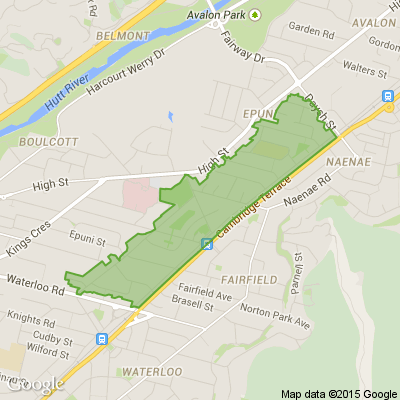How Forgiveness can transform your relationship
Recent studies have shown that forgiveness is an essential component of successful romantic relationships. In fact, the capacity to seek and grant forgiveness is one of the most significant factors contributing to marital satisfaction and a lifetime of love.
Forgiving yourself and others are about being willing to acknowledge that you are capable of being wounded. It also means that you are willing to step out from the role of victim and take charge of your life.
Couples who practice forgiveness can rid themselves of the toxic hurt and shame that holds them back from feeling connected to each other. In The Science of Trust, Dr John Gottman explains that emotional attunement is a skill that allows couples to fully process and move on from negative emotional events, and ultimately create a stronger bond.
Why is Forgiveness Important?
Often people equate forgiveness with weakness, and it is widely believed that if you forgive someone, you’re condoning or excusing their behaviour. However, in relationships, forgiveness is a strength because it shows you are capable of goodwill toward your partner. Studies indicate that forgiving someone is one way of letting go so that you can heal and move on with your life.
Forgiveness is about giving yourself, your children, and your partner the kind of future you and they deserve – unhampered by hurt and anger. It is about choosing to live a life wherein others don’t have power over you and you’re not dominated by unresolved bitterness and resentment.
It’s important to consider that forgiveness is a gift you give yourself. Author Deborah Moskovitch reiterates that forgiveness is not letting someone off the hook. She writes, “Forgiveness is not the same as forgetting what happened or condoning your ex-spouse’s actions, giving up claims to a fair settlement or reconciliation. While forgiveness may help others, it first and foremost can help you.”
Here are seven ways forgiveness can transform your relationship.
1. Write down three ways negative emotions have impacted (or are still impacting) your relationship.
Be aware of negative emotions that you have not yet processed. Talking to a close friend or therapist can help facilitate this.
2. Find a way to dislodge yourself from negative emotions.
Examples include therapy, yoga, improving your physical health, and practising expressing thoughts, feelings, and wishes in a respectful way. Resentment can build when people sweep things under the rug, so avoid burying negative feelings.
3. Take small steps to repair and let go of grudges.
According to Dr Gottman, the number one thing that prevents couples from building trust and emotional attunement is the inability to bounce back from a conflict in a healthy way. The number one solution to this problem is to get really good at repair. He tells Business Insider that you’ve got to get back on track after a disagreement if you don’t want issues to fester.
4. Accept responsibility for your part in the interaction.
One person’s ability to do this can change the dynamic of the relationship. Drs. Julie and John Gottman explain that “one person’s response will literally change the brain waves of the other person.” Apologize to your partner when appropriate. This will validate their feelings, promote forgiveness, and allow you both to move on.
5. Don’t let wounds fester.
Challenge your beliefs and self-defeating thoughts about holding on to hurt feelings. Processing what happened will allow you to let resentments go so you can move on to a healthier relationship. Keep the big picture in mind.
6. Accept that people do the best they can.
This does not mean that you condone the hurtful actions of others. You simply come to a more realistic view of your past. As you take stock, you will realize that all people operate out of the same basic drives, including self-interest.
7. Think like a forgiving person.
Practice forgiveness by actively thinking like a forgiving person. Avoid holding grudges and declare you are free to stop playing the role of victim. After all, we are all imperfect and deserve compassion.

Poll: Do you think NZ should ban social media for youth?
The Australian Prime Minister has expressed plans to ban social media use for children.
This would make it illegal for under 16-year-olds to have accounts on platforms including TikTok, Instagram, Facebook and X.
Social media platforms would be tasked with ensuring children have no access (under-age children and their parents wouldn’t be penalised for breaching the age limit)
.
Do you think NZ should follow suit? Vote in our poll and share your thoughts below.

-
85.2% Yes
-
13.5% No
-
1.2% Other - I'll share below
scumbags
There are some really awful people around at the moment. This is what happened on Sunday.
We live in Hinemoa Street opposite the Waiwhetu Stream. At around 3.40 in the afternoon I was looking out my window and saw a car pull up and start to feed the geese and ducks out the window. Then The passenger an asian man jumped out and threw himself onto a goose. he picked it up and put it the boot of the car.
I immediately ran over and stood in front of his car to stop him moving I also called my husband to help. A lovely man was riding his bike and saw it and stopped to help me. The driver tried to drive into me but I didnt move. He tried telling us it was his pet. These are wild geese.
They had a cage in the boot and some wire all ready to catch the poor bird like they have done it before. My husband took the bird from the car and released it. I then moved out of the way and after lots of abuse from the driver they drove off threatening to come back and get more.
No one should be allowed to take these beautiful birds and certainly not like this. they are all starting to have wee babies at the moment the whole thing was so upsetting to me. Another neighbour further down the road also saw it all happen.
Please keep a look out for this car and if you see them by the stream go over and watch them lets all stop this happening.
What's your favourite recipe for courgettes?
Kia ora neighbours. If you've got a family recipe for courgettes, we'd love to see it and maybe publish it in our magazine. Send your recipe to mailbox@nzgardener.co.nz, and if we use it in the mag, you will receive a free copy of our January 2025 issue.










 Loading…
Loading…




















